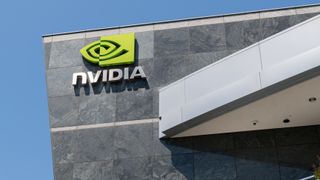Is Nvidia working on new budget graphics cards to hit AMD where it hurts?
Budget battlefield

While we’re all eagerly awaiting the reveal of the high-end Nvidia RTX 3080 graphics card, which will likely blow us all away later this year, it seems that Nvidia is also planning on updating its GTX 1650 range of affordable cards – likely in a bid to attack arch rival AMD in a market it’s usually strongest in.
You see, while Nvidia is the undisputed king of high-end and enthusiast GPUs, when it comes to budget and more affordable graphics cards, AMD is gaining market share. The budget and mid-range markets are huge, so it makes sense that Nvidia wouldn’t want to neglect them and allow AMD to dominate there.
- Find the best Nvidia GPU for you
- Check out all the best PC games
- We'll show you how to build a PC
The rumors emerge from a post on the AIDA64 website which mentions to previously-unannounced variants of the affordable Nvidia GTX 1650 – the GeForce GTX 1650 TU116 and GeForce GTX 1650 TU106.
These would apparently join last year’s GeForce GTX 1650 and the GeForce GTX 1650 GDDR6.
New silicone
If the post is correct, it means Nvidia could be planning to release a GTX 1650 using the TU116 die, which is found in the likes of the GTX 1650 Super and GTX 1660 Super. This could bring a transistor count of 6.6 billion, compared to the 4.7 billion of the existing GTX 1650 GPUs.
Meanwhile, the second new GTX 1650 will apparently use the TU106 die, which is particularly interesting as that’s the die found in the likes of the RTX 2060 Super and RTX 2070 – two more expensive GPUs from Nvidia that feature Tensor and RT cores for advanced ray tracing lighting effects, which are usually exclusive to Nvidia’s RTX 20-series GPUs.
If there is going to be a GTX 1650 model with the TU106 die, does that means Nvidia is bringing ray tracing to an affordable GTX GPU?
Get daily insight, inspiration and deals in your inbox
Get the hottest deals available in your inbox plus news, reviews, opinion, analysis and more from the TechRadar team.
We’re not too sure, but stranger things have happened. If these rumors are true, then as Tom’s Hardware points out, it could be Nvidia clearing out excess dies and leftover silicone.
If Nvidia can use those dies to come up with products to hit AMD where it hurts – in the budget and affordable market – then all the better.
- These are the best GPUs of 2020

Matt is TechRadar's Managing Editor for Core Tech, looking after computing and mobile technology. Having written for a number of publications such as PC Plus, PC Format, T3 and Linux Format, there's no aspect of technology that Matt isn't passionate about, especially computing and PC gaming. Ever since he got an Amiga A500+ for Christmas in 1991, he's loved using (and playing on) computers, and will talk endlessly about how The Secret of Monkey Island is the best game ever made.
Most Popular
